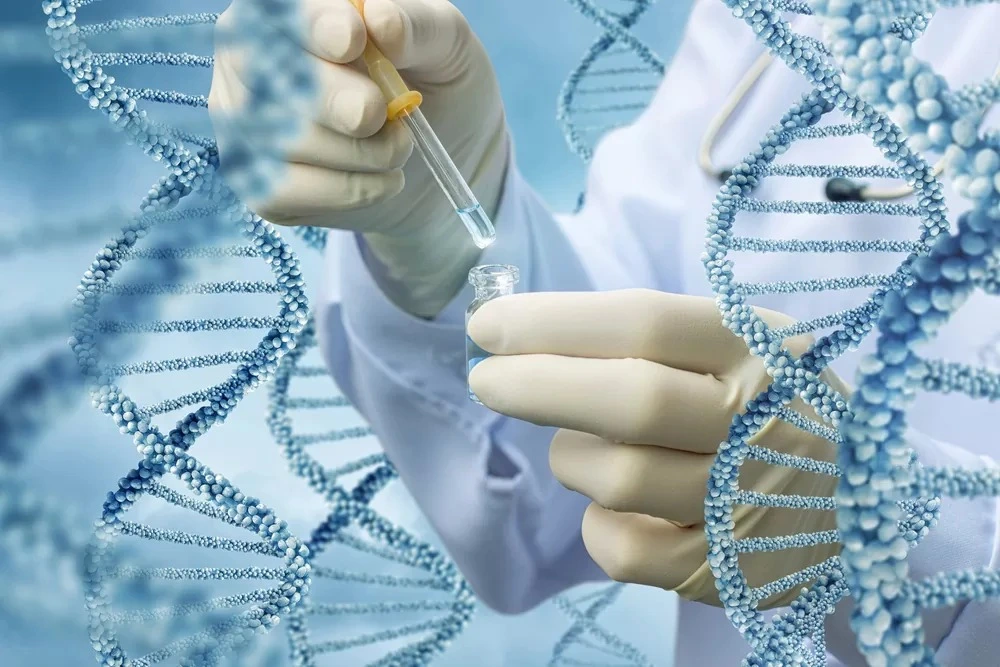Genetic Testing - Why it is crucial for your health? | DNA Diagnostics

Genetic testing has become an essential tool in modern healthcare, offering valuable insights that can influence t medical decisions and patient outcomes. It involves analyzing an individual's DNA to identify genetic mutations or variations that may predispose them to certain health conditions, influence their response to treatments, or inform reproductive decisions. Genetic testing is important for diagnosing inherited disorders, tailoring personalized treatment plans, and making informed decisions about future health. In Kenya the relevance of genetic testing is growing, providing more people with access to advanced healthcare solutions this article explores why genetic testing is important, its applications, and its benefits, emphasizing its significance in Kenya’s healthcare landscape.
Genetic Testing - Understanding DNA Analysis | DNA Diagnostics Lab
Genetic testing involves examining an individual’s DNA to identify specific changes in chromosomes, genes, or proteins. These changes can indicate a predisposition to certain diseases, confirm a diagnosis, or predict how a person might respond to specific treatments. Different types of genetic tests, including diagnostic testing, carrier testing, prenatal testing, and predictive testing, serve varied purposes but share the goal of providing crucial information that can guide healthcare decisions.
Early Diagnosis of Genetic Disorders
One of the most significant benefits of genetic testing is its ability to diagnose genetic disorders early. Conditions such as cystic fibrosis, sickle cell anemia, and Huntington’s disease can be identified through genetic testing, sometimes even before symptoms appear. Early diagnosis allows for timely interventions, which can significantly improve quality of life and, in some cases, prolong it. For parents who may carry genes for hereditary conditions, genetic testing provides essential information about the risk of passing these conditions to their children.
Personalized Medicine - Tailored healthcare solutions
Genetic testing is crucial in personalized medicine, tailoring treatment to an individual’s genetic profile. Understanding how a person’s genetic makeup affects their response to certain medications can help healthcare providers choose the most effective treatments with the fewest side effects. For instance, some people have genetic variations that affect how they metabolize drugs like blood thinners or antidepressants. Genetic testing can identify these variations, allowing doctors to adjust dosages or select alternative medications to achieve better outcomes.
Informed Reproductive Choices - Family planning
For couples planning to start a family, genetic testing provides critical information that informs reproductive choices. Carrier testing can determine if both partners carry a gene for a recessive genetic disorder, such as cystic fibrosis. If both partners are carriers, they have a 25% chance of having a child affected by the disorder. With this knowledge, couples can explore options like in vitro fertilization (IVF) with preimplantation genetic testing (PGT) to select embryos free of the genetic disorder.
Cancer Risk Assessment - Understand your risks
Genetic testing is also vital in assessing an individual’s risk of developing certain types of cancer. Mutations in genes like BRCA1 and BRCA2 significantly increase the risk of breast and ovarian cancer. Individuals with a family history of these cancers can undergo genetic testing to determine if they carry these mutations. If they do, they can take proactive steps, such as increased surveillance, lifestyle changes, or preventive surgeries, to reduce their risk.
Guiding Cancer Treatment Decisions - Personalized Care
For patients already diagnosed with cancer, genetic testing provides critical information that guides treatment decisions. Some cancers are driven by specific genetic mutations and targeted therapies designed to inhibit these mutations can be highly effective. For example, patients with non-small cell lung cancer who have mutations in the EGFR gene may respond well to EGFR inhibitors, a type of targeted therapy. Genetic testing helps identify these mutations, ensuring patients receive the most appropriate and effective treatment.
Managing Inherited Conditions
For individuals with a known family history of genetic conditions, genetic testing is instrumental in managing their health. Conditions like hereditary hemochromatosis, an iron overload disorder, or Lynch syndrome, which increases the risk of certain cancers, can be monitored and managed more effectively with the information provided by genetic testing. Early detection through genetic testing allows for proactive management, reducing the risk of complications and improving long-term outcomes.
Conclusion
Genetic testing is a powerful tool that has the potential to transform healthcare by providing critical information that can guide diagnosis, treatment, and prevention strategies. Whether it’s diagnosing genetic disorders early, personalizing treatment plans, informing reproductive choices, or assessing cancer risk, genetic testing plays a crucial role in modern medicine. For individuals and healthcare providers in Kenya, the growing availability of Genetic Testing in Kenya offers new opportunities to improve health outcomes and enhance the quality of care. As the field of genetics continues to advance, the importance of genetic testing will only increase, making it an essential component of future healthcare strategies.
